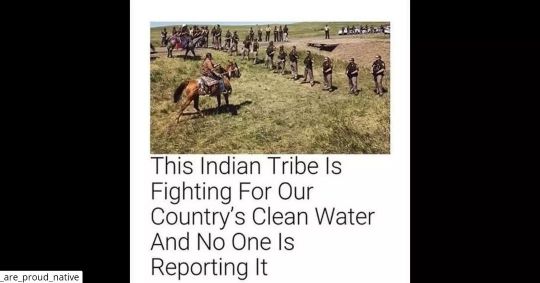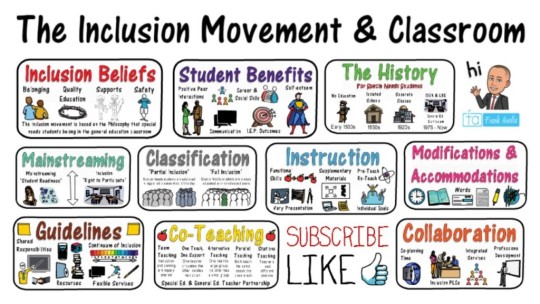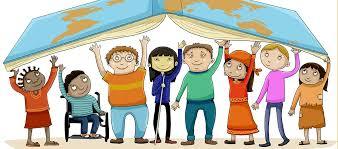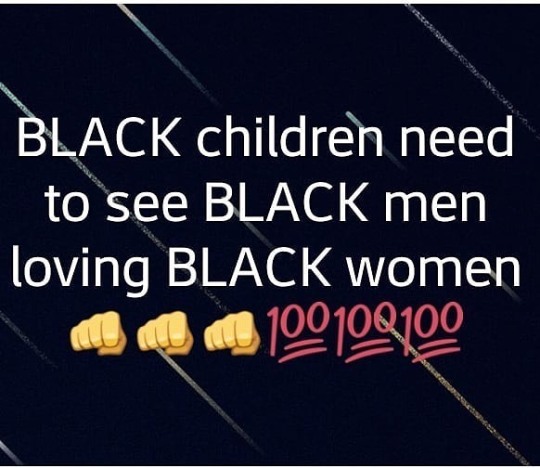#indigenousknowledge
Photo

#Repost @we_are_proud_native • • • • • • Follow us >> @we_are_proud_native Follow us >> @we_are_proud_native . . All credits are reserved for their respective owners 💼 Credit 👉 📷: unknown (DM please) . . . #nativeamericanheritagemonth #Native #nativeamericanpride #nativeamericanbeauty #nativeamericanhistory #nativecultures #nativeamericanproud #nativefashion #nativeculture #nativeamericanstyle #nativewomen #indigenous #indigenouswomen #indigenouslivesmatter #indigenousartist #indigenousrights #indigenousknowledge #indigenousfashion https://www.instagram.com/p/CoFuwUqPpDS/?igshid=NGJjMDIxMWI=
#repost#nativeamericanheritagemonth#native#nativeamericanpride#nativeamericanbeauty#nativeamericanhistory#nativecultures#nativeamericanproud#nativefashion#nativeculture#nativeamericanstyle#nativewomen#indigenous#indigenouswomen#indigenouslivesmatter#indigenousartist#indigenousrights#indigenousknowledge#indigenousfashion
2 notes
·
View notes
Text
🪶 GUEST BLOG POST:
Delve into our compelling guest blog post , "The Real Story of Thanksgiving."
Written by Courtney YellowWolf Graham-Wilson (courtyellowwolf), this will open your eyes to the holiday's true history involving the Pequot tribe and why/how Abraham Lincoln got involved in making it a Federal Holiday.
Then supplement this insightful read by listening to my insight-full interview with Krista Beazley, White Mountain Apache Regional Director. Krista offers her perspective on the history of her Tribe as well as a sneak peek into Indigenous cuisine around this time of year.
Read the blog post and/or listen to the podcast replay here: https://laurazielke.com/2023/11/thanksgiving-truth/

#guestblogpost#NativePerspectives#ChoctawVoices#WhiteMountainApache#IndigenousHeritage#ThanksgivingMyths#CulturalAwareness#NativeAmericanHeritage#FirstNationsTruths#IndigenousStories#NativePodcast#LearnTheRealStory#RespectfulRemembering#AuthenticNarratives#ThanksgivingHistory#IndigenousVoices#DecolonizeHistory#NativeAmericanCulture#ReclaimingHistory#IndigenousKnowledge#Thanksgiving2023#Thanksgiving#DayofMourning2023
0 notes
Text
Happy International Day of World's Indigenous Peoples 2023
Happy International Day of World's Indigenous Peoples, 9 August, 2023. 2023 Theme: Indigenous youth as agents of change for self-determination.
#internationaldayofindigenouspeople#indigenouspeoplesday#indigenouspeopleday#indigenouspeople#indigenouspeoples#sofiaflorina#indigenouswomen#indigenousyouth#indigenousrights#indigenouslivesmatter#masyarakatadat#masyarakatadatnusantara#indigenouswomenrise#indigenousday#indigenousrising#indigenousculture#indigenousknowledge#indigenousresistance#hakmasyarakatadat#fyp#informasi#fyi#foryourinformation
0 notes
Photo



(via How Indigenizing the curricula can lead to a more inclusive classroom)
https://renminds.org/2020/08/26/how-indigenizing-the-curricula-can-lead-to-a-more-inclusive-classroom/
0 notes
Link
0 notes
Video
youtube
Not Bashing the BIA! I am working on establishing a better BIA to help N...
Not Bashing the BIA! I am working on establishing a better BIA to help Native American people! #bia #nativeamericanreservation #indigenousknowledge
0 notes
Photo

If you’re longing for a book to immerse yourself in, that will give you something positive and beautiful to fill your brain and perhaps evolve your understanding of the natural world, look no further. I’ve been loving Braiding Sweetgrass by Robin Wall Kimmerer, which I’m late to the party on but which has been like a breath of fresh air in the dead of winter. The subtitle describes what this book has to offer - Indigenous Wisdom, Scientific Knowledge, and the Teachings of Plants. Kimmerer is excellent at fusing her indigenous knowledge and scientific acumen to explain how plants function in concert with the rest of the natural world, and how their relationship of reciprocity illustrates the goal all people should be striving for in their relationships with the natural world and one another. Her evocative prose reframes biological processes into beautiful lessons guiding our own evolution and understanding. If you haven’t read this book yet, get it in your queue. It’s the perfect book to be reading as spring comes. ⭐️⭐️⭐️⭐️⭐️ Note: I bought that braid of sweetgrass years ago before I understood its place as a sacred plant that you should get only from indigenous vendors. I love to smell it - it really is one of the most comforting scents, like a field of hay with just a hint of cinnamon or vanilla essence. And now that I’ve been reading this book I hear the lovely Anishinaabe word for sweetgrass - wiingaashk - in my head whenever I smell it. #books #bookstagram #indigenouswriters #indigenousauthors #braidingsweetgrass #plants #botany #nature #instabook #instabooks #bookrecommendations #booklover #currentlyreading #naturalscience #indigenousknowledge #reciprocity #sweetgrass #ecology #reading #diversifyyourbookshelf #readersofinstagram #readmorebooks https://www.instagram.com/p/CZMj0-QO3lR/?utm_medium=tumblr
#books#bookstagram#indigenouswriters#indigenousauthors#braidingsweetgrass#plants#botany#nature#instabook#instabooks#bookrecommendations#booklover#currentlyreading#naturalscience#indigenousknowledge#reciprocity#sweetgrass#ecology#reading#diversifyyourbookshelf#readersofinstagram#readmorebooks
4 notes
·
View notes
Quote
The young and the old are linked in one long breath, an inhalation that calls for reciprocal exhalation, nourishing the common root from which they both arose. New leaf to old, old to new, mother to daughter—mutuality endures.
Robin Wall Kimmerer, Braiding Sweetgrass
#science#indigenousknowledge#braiding sweetgrass#robin wall kimmerer#generations#lineage#history#geneaology#mother#daughter#indigenous
4 notes
·
View notes
Video
youtube
The Nordic White Raven
1 note
·
View note
Photo

Science asks us to learn about organisms, traditional knowledge asks us to learn from them. Mosses are ancient, they’ve figured out how to live well on the earth. They are storytellers. In their simplicity, in the power of being small, mosses have become so successful because they live in these tiny layers on rocks, on trees, they work with the natural forces that lay over every surface of the world. They are examples of not only surviving but flourishing by working with natural processes. Mosses are superb teachers about living within your means. Mosses have, in the ecological sense, very low competitive ability, because they’re small, because they don’t grab resources very efficiently. This means that they have to live in the interstices, where the dominant plants can’t live. But the way that they do this really brings into question the whole premise that competition is what really structures biological evolution and biological success. Mosses are not good competitors at all and yet they are the oldest plants on the planet. They have persisted here for 350 million years... so they ought to be doing something right. One of those ‘somethings’ is their ability to cooperate with one another. Their ability to share the limited resources that they have to really give more than they take. Mosses build soil, they purify water, they are like the coral reefs of the forest—they make homes for this myriad of cool, little invertebrates who live there. They are engines of biodiversity. They do all of these things and yet they are only one centimeter tall. This is a time to take a lesson from mosses. -Some wisdom from Robin Wall Kimmerer, native storyteller and bryologist (studier of mosses). #ancestralwisdom #robinwallkimmerer #braidingsweetgrass #indigenousknowledge #gatheringmoss #bryology #moss #biodiversity https://www.instagram.com/p/CGkWaEQhpAm/?igshid=agu73912p5nf
#ancestralwisdom#robinwallkimmerer#braidingsweetgrass#indigenousknowledge#gatheringmoss#bryology#moss#biodiversity
1 note
·
View note
Photo

#Repost @apacheindigenous • • • • • • 1 Like = 1 Respect!🏹🌵 - 📸 Via 📷Unknown, tag to credit! - Tag someone who needs to see this💙 - Follow 👉 @ndnonetribes more content💓🌼🥰 ======================= Follow 👉 @ndnonetribes more content💓🌼🥰 - - - - #aborigine#tlingit#mmiwg#nativelife#nativemen#nativelove#autochthonous#nativeamericanprincess#indigenousamerican#amerindian#indigenousknowledge#cherokeeindian#tsimshian#nativegirls#americanindians#nativeamericanheaddress#webeenhere#nativeamericanroots#indigenousbusiness#cherokeecounty#nativeamericanrights#nativetour https://www.instagram.com/p/CjikRRLpXRv/?igshid=NGJjMDIxMWI=
#repost#aborigine#tlingit#mmiwg#nativelife#nativemen#nativelove#autochthonous#nativeamericanprincess#indigenousamerican#amerindian#indigenousknowledge#cherokeeindian#tsimshian#nativegirls#americanindians#nativeamericanheaddress#webeenhere#nativeamericanroots#indigenousbusiness#cherokeecounty#nativeamericanrights#nativetour
0 notes
Text
"wonder changes us and changes our world. When we stop marvelling at ourselves—ourselves in the most connected and expansive sense, that is, we as individuals, as activists, as communities, as past and future ancestors, as gods, as mountains and rivers and ocean—we lose belief in our ability to heal and transform even the deepest wounds. The act of bringing new life to our Indigenous stories reawakens our lands and peoples to remember the power we have always had, to feed our families and strangers, to care for the past and future. Hope is fed by our ability to apprehend and trust our storied connections, by the rush of unexplainable movement, by the unruly growing of our love and gratitude for the strange and marvellous ways we live on."
~ Indigenous scholars Brian Kamaoli Kuwada (Kānaka Maoli) and Aiko Yamashiro (Japanese/Okinawan/Chamorro)
2 notes
·
View notes
Photo

#melanin #melaninbabies #indigenousknowledge #indigenous #nilevalleymovement #blackknowledge #blacklovequotes #blacklove (at Charlotte, North Carolina) https://www.instagram.com/p/ByYB0HPhhDv/?igshid=v59ha8854lwv
#melanin#melaninbabies#indigenousknowledge#indigenous#nilevalleymovement#blackknowledge#blacklovequotes#blacklove
97 notes
·
View notes
Photo

What is something new you've recently tried or learned?
Me? Check it out! Another instrument followed me home this week...
Say hello to the Zhonghu (中胡) which I'll be learning to play in this semester's Chinese ensemble as we're introduced to Silk and Bamboo music (江南絲竹 Jiangnan Sizhu).
Zhonghu is an alto version of an Erhu (二胡), a 2 spike fiddle from the Huqin family. I’ll also pick up the Gaohu (高胡) as our class explores Cantonese ensemble music from Guangdong Province.
So, my sanshin has a new friend! (They’re cousins, I suppose.) Let's hope we all get along!!! 😅

As ridiculous as it is to add this class to my current schedule or to think that someone like me would go anywhere near another instrument, there were several reasons that drew me to consider this unique opportunity, including my own family’s relationship to China. And, as some of you know, my decision to follow the path that led me here to Hawai'i meant making promises about leaning into challenges and embracing opportunities to stretch and grow beyond my comfort zone.
So, here we are...
Ultimately, as much as they challenge me and force me to confront many of my anxieties, I find the opportunity to study music and dance is a regenerative experience and adds so much dimension to both what and how I learn. And despite how stressful performance is for me, these are also spaces where it feels I can show up as my whole self and connect with others in ways I've not experienced with anything else, even through my work as a visual artist. And if you know anything about what my experiences have been navigating academia, you know I need all the love balm, authentic connection, and cognitive armor I can get to survive...I think we all do, but I’ve been feeling this especially as I continue to be nudged to pursue a masters or PhD and/or return to teaching!
The ethnomusicology classes here (and, for that matter, my Second Language Studies) are like an antidote for those toxic environments where professors openly admit they teach about Okinawa because their goal is to turn us into tourists, professors who avoid acknowledging Loochoo / Okinawan indigeneity also cavalierly use "Eskimo" when speaking about Inuit and non-Inuit alike, and white men are positioned as authorities on our cultures and identities even when they answer students' questions and refute our lived experiences by saying things like, "Well, no, I'm married to a Japanese woman, and I've never heard that before..." etc...
I could go on, but I don't mean for this to become simply a rant about the need to decolonize /and indigenize academia. And yet, these feelings and the fatigue that stems from wading through that on a perpetual basis are related to why I'm so grateful for the dance and music classes I have opportunity to take and the practitioners sharing their amazing skills and knowledge of their own cultures with incredible graciousness, self-awareness, passion, and patience.
Anyway, now that I've shared some of the fear, excitement, and gratitude of bringing home another instrument, I leave you with a few more questions to ponder...
What is something you do every day / week that is healing or restorative? What led you to incorporate this as a regular practice?
Is there something you struggle with or might feel you're not good at but love to do? Is there something you used to enjoy but stopped doing because you thought you would never be great at it? What do/did you love about it?
What's something you've recently done in an effort to #decolonize your day-to-day life / your community?
#TrySomethingNewEveryDay#DecolonizationIsAProcess#Decolonize#IndigenizeEducation#IndigenousKnowledge#Ryukyu#Loochoo#ethnomusicology#SelfCare#ArtTherapy#okinawa#gratitude#anxiety#fear
3 notes
·
View notes
Photo

Kilo Hōkū: observing the stars. For the Purple Maiʻa Foundation, the stars are indigenous innovators and entrepreneurs. This year, 12 teams are competing, and a panel of five esteemed judges (leaders in the Venture Capital, government, and innovation spaces) will select three teams to be awarded prizes that in past years have exceeded $16,000! Demo Day is Saturday at Honolulu Academy of Art/Doris Duke Theater!
1 note
·
View note
Photo

Kapwa Collective and PACHA Arts
co-present
WAYS of WEAVING
a zero-waste weaving playshop
with special guests,
Maria Montejo & Cynthia Alberto
Date: Friday, April 5, 2019
Time: 6-9 pm
Location: 519 Church Street Community Centre, Toronto
Suggested donation: $40 (All materials provided)
*Proceeds go toward supporting the 4th International Babaylan Conference (www.centerforbabaylanstudies.org)
>><<
Access: The closest accessible subway station is WELLESLEY. The 519 is a fully accessible building with gender inclusive washrooms. 2SLGBTIQ* Positive space.
>><<
***To register, please send an email with your name and send e-transfer to: [email protected]
>><<
Playshop Description:
Maria Montejo and Kapwa Collective will share stories of Mayan weaving and indigenous weaving practices of the Philippines.
Guest artist, Cynthia Alberto (Weaving Hand, NYC) will introduce the concept of zero-waste weaving. She will demonstrate basic weaving techniques, share woven tapestries, and teach us how sustainable weaving practices can benefit the environment.
Participants will receive a wooden frame and learn how to make their own looms, then we will weave together! All materials are provided but participants are encouraged to bring recyclable and fabric-based items (i.e. plastic or paper bags, used clothing, etc.) to weave into their projects. Everyone can take their looms home!
>><<
Bios:
Maria Montejo (Deer clan) is a member of the Jakaltec/Popti (Mayan) community of Indigenous people. In addition to her formal schooling, Maria has been mentored from a young age by various Elders, Medicine people and Traditional Teachers on Turtle Island and from Central and South America.
Cynthia Alberto is an artist, designer, and founder of the Brooklyn-based healing arts studio Weaving Hand, Cynthia Alberto seeks to bridge traditional and contemporary weaving techniques, drawing inspiration from ancient communities of Europe, Asia, Latin America, and Africa. Her artwork, performances, and public weaving projects honour traditional and artisanal techniques while also incorporating unconventional materials and a zero-waste philosophy. Throughout her artwork and teaching, Alberto continuously explores the many intersections between weaving and healing, as well as craft and sustainability.
Kapwa Collective is a mutual support group of Filipino-Canadian artists, critical thinkers, and healers who work towards bridging narratives between the Indigenous and the Diasporic, and the Filipino and the Canadian. We are co-presenting the 4th International Babaylan Conference on September 20-22, 2019. www.centerforbabaylanstudies.org
PACHA Indigenous Arts Collection is a family run business. Pacha (meaning "earth" in Kichwa) aims to showcase the best of indigenous arts and crafts. https://www.pachaarts.com
#weaving#indigenousknowledge#zerowaste#playshop#torontoarts#pacha#earth#earthloving#stewardship#remembering#decolonize#weavinghand#filipinocanadian#diaspora
7 notes
·
View notes